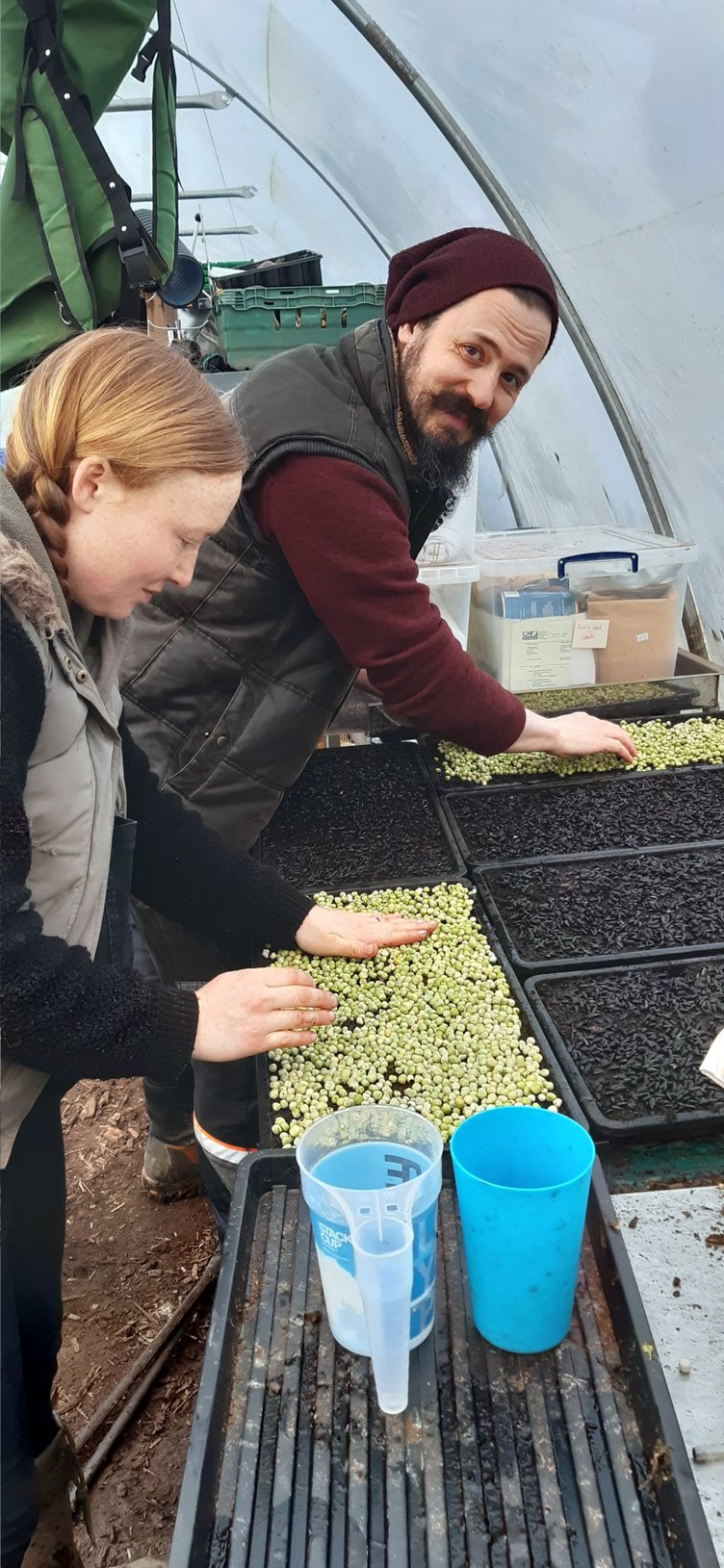Twenty-four trainee fruit and veg growers are benefiting from an innovative local project that’s providing free work placements on market gardens near Abergavenny.
The five-day placements, funded through the Welsh Government Rural Development Programme 2014-2020, are being organised by local group Our Food 1200, which is working to rebuild horticulture across Monmouthshire, South Powys and the Brecon Beacons so we’re less reliant on imported fruit and veg.
Project co-manager Sue Holbrook says the recent fresh food shortages, evident in empty supermarket shelves, have shone a spotlight on food security and highlighted the need for both horticultural skills and more small farms growing fresh food for local people.
“Monmouthshire was once a thriving centre for horticulture, but the shift to global supply chains has decimated commercial growing around here. Covid, Brexit and the war in Ukraine have shown us how fragile these chains are and made us think seriously about food security.
“But there are other good reasons to grow more food locally, including the chance to adopt regenerative practices, which store carbon in the soil and help restore nature, and the fact that short, local supply chains help keep profits local and are a key part of developing a strong foundational economy.
“Welsh Government and Monmouthshire County Council have both recognised the importance of regenerative farming and establishing more secure local food supplies, so it’s great to be delivering a project that provides the growers of the future with real-world experience that will help them contribute to those goals.”
Lewis Williams, 38, from Blackwood, is currently part way-way through his placement at Langtons Farm in Crickhowell.
He completed two of his five days there in January, working alongside owners David and Katherine Langton, and seeing for himself the many tasks involved in running a successful market garden business.
Lewis worked in hospitality management and ran a successful graphic design studio in Caerphilly before deciding to switch direction during the Covid pandemic. He’s currently enrolled on the year-long Coppicing and Green Wood Trades course at Black Mountains College near Talgarth, but has also discovered a passion for growing.
“I know now that I’d rather be working outside than stuck indoors at a desk. Plus I like the fact that with both horticulture and woodland work you can see what you’ve achieved at the end of the day.”
Not that Lewis’s accrued business skills will be wasted if he does move into horticulture full-time. As David Langton notes: “Good business skills are essential. People think farming and growing is just about the manual side. But you’re running a small business and often doing 10 different jobs in a day, from sales and marketing, to accounts, planning and customer relations, as well as all the hard graft.”
Lewis is scheduled to return to Langtons Farm in May, and is expecting even busier days as the growing season will be in full swing. “I’ve been immersing myself in outdoor work for a while now, from planting trees to gardening jobs, so I have a good idea of how unglamorous it can be. It’s hard work, but it’s also really rewarding because you’re producing something real and providing a meaningful service for your local community: I like the idea of keeping things small and local – neighbours helping neighbours. It feels like that’s the way we’re meant to live.”
This year’s work placements are fully subscribed, but Sue says Our Food 1200 is hoping to secure additional funding so they can repeat the scheme next year. “We’re also discussing training provision with Black Mountains College, Gwent College and the NPTC Group of Colleges. We want to show young people that small-farm regenerative horticulture can be a fulfilling career and provide a decent living.”
To register your interest in future work placements, email [email protected].





Comments
This article has no comments yet. Be the first to leave a comment.